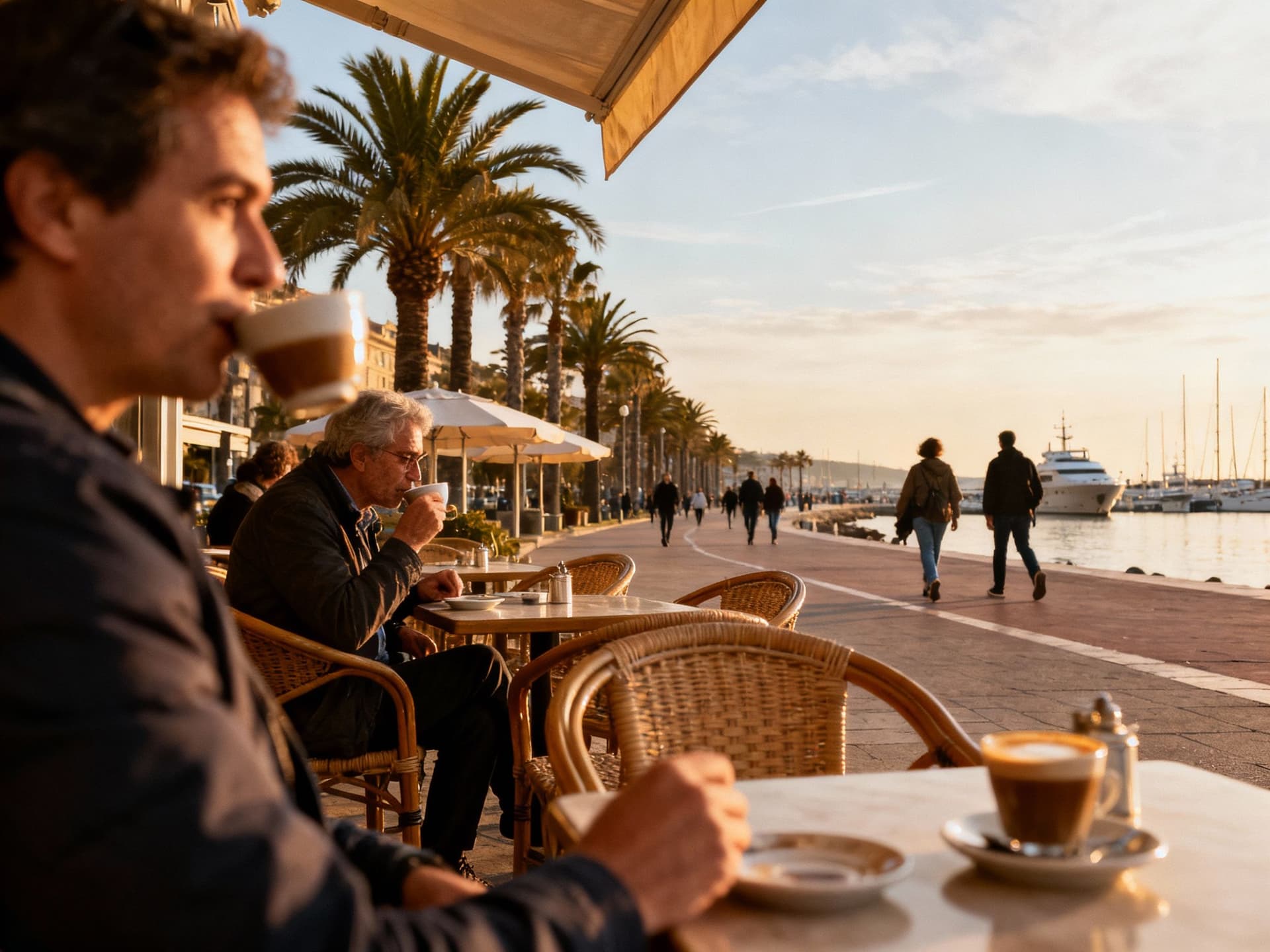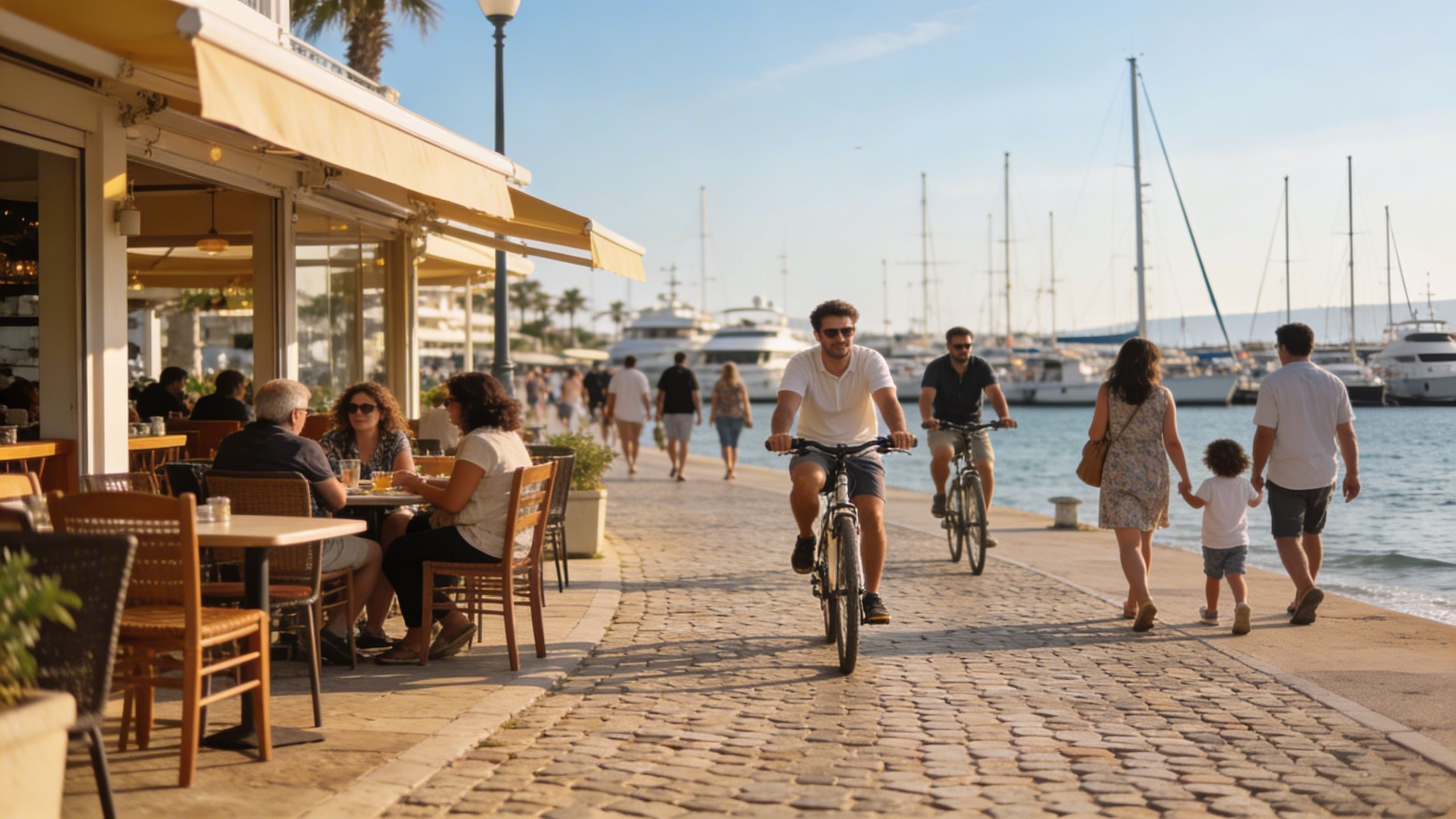Cyprus: Residency, non‑dom perks and the neighbourhood tradeoffs
Cyprus blends seaside ritual and tax advantages. Learn how fast‑track residency, the non‑dom SDC exemptions and neighbourhood realities shape smart purchases.
Imagine waking to a sunlit balcony in Limassol, slipping down to a café on Anexartisias Street, then joining neighbours for an evening swim at Lady’s Mile. Cyprus moves at a Mediterranean tempo: lively mornings, long lunches, and social evenings that stretch late. But under the olive trees and coastal promenades lies a practical truth international buyers must know — residency, taxation and local rules shape whether that dream is affordable, compliant and sustainable.
Living the Cyprus life — sounds, tastes and neighbourhoods

Cyprus feels both island‑small and European-connected. Limassol hums with seaside dining and new developments along Molos; Paphos keeps a quieter coastal charm around Kato Paphos and the Old Town’s tavernas; Nicosia is a compact capital where coffee culture meets municipal bureaucracy; and Troodos villages trade stone houses and grape harvest rituals. For property buyers, the vibe of a street — the morning bakery on Gladstonos in Larnaca or the fish stalls near Limassol Marina — often matters more than headline price per square metre.
Limassol & Molos: the new‑meets‑local shoreline
Picture promenades, boutique gyms and apartments with terraces facing the sea: Limassol’s Molos and Agios Tychonas attract buyers who want café mornings and marina evenings. This neighbourhood rhythm supports short‑stay rentals and year‑round living — but it also means planning for tourist‑season management, local homeowner association rules and the prevalence of new‑build developers selling first‑sale properties.
Paphos Old Town and Polis: slower, village‑style living
If you want quiet lanes, mezze evenings, and pebble coves, Old Paphos and nearby Polis deliver. Expect older stone homes, lower turnover, and a stronger local rhythm — markets on the weekend, tavernas where owners know your name. For buyers this means different expectations: renovation budgets, title‑deed checks on older properties, and a closer relationship with local contractors and municipal offices.
- Lifestyle highlights: Anexartisias Street (Larnaca) coffee culture; Molos promenade (Limassol) evening life; Kato Paphos harbour fish market; Troodos wine festivals; Larnaca salt lake birdwatching in winter.
Making the move: residency, tax perks and practical constraints

Dreams collide with paperwork. Cyprus still offers clear pathways to long‑term residence through investment or Category F routes; the fast‑track investor route requires a minimum investment — typically around €300,000 in new property — and has specific proof‑of‑funds and payment timing requirements. Knowing which route you qualify for early avoids costly timing mistakes with developers and migration authorities.
Why the €300k fast‑track matters for buyers
Developers commonly price new units to meet the fast‑track threshold. That’s convenient if you want residency, but note: payments must be traceable and often made from abroad. Contracts with staged developer payments can delay eligibility unless you’ve cleared the specified amount at application time. Insist on clear payment clauses and verify that the property is a first sale eligible under the regulation.
Tax reality: the non‑dom advantage and what it covers
Cyprus offers a powerful non‑dom (non‑domiciled) regime for qualifying residents: most passive income streams — dividends, interest and certain rental SDC levies — are exempt from the Special Defence Contribution. For a buyer planning to receive overseas dividends or earn rental income, non‑dom status can change a marginal deal into an efficient holding structure.
- Steps to protect lifestyle and tax outcomes: 1) Confirm which residency route you realistically qualify for (fast‑track vs Category F). 2) Structure purchase funds so they meet migration payment rules (traceable international transfers). 3) Seek a written tax opinion on non‑dom eligibility before purchasing for rental income strategies. 4) Insist on clean title and up‑to‑date building permits; older village houses often need extra due diligence.
Insider knowledge: expat lessons and local quirks that save money
Expats say the surprise isn’t the laws — it’s the timing. Fast‑track approvals can be promised in weeks but delayed by administrative backlogs. Likewise, municipal fees, utility connections and title transfers often take longer than developer timelines. Build a six‑month buffer into moving plans and budget for interim housing and renovation delays.
Cultural small print: how local rhythms affect daily life
Language is not a hard barrier — English is widely used in legal, banking and property transactions — but social integration takes time. Cafés, church festivals and municipal events are where neighbours meet. Buying near a strong local community (e.g., Kissonerga or Larnaca’s old quarter) means more support from neighbours when arranging contractors or handling municipal paperwork.
- Practical red flags to watch for before you sign: • Missing or partial title deeds on older resale properties • Developer payment schedules that conflict with residency proof requirements • Short‑term rental planning without VAT/tourism licence clarity • Undisclosed communal debt or building‑fund arrears on apartments • Assumed non‑dom status without formal tax advice
How local agencies add value
A good local agency does three things: translates lifestyle into concrete neighbourhood matches, vets developer payment terms against migration rules, and coordinates lawyers and tax advisers who understand Cypriot quirks. Use agencies with documented experience handling Reg. 6(2) applications and ask for previous client references — not marketing claims.
- When to make the move — a buyer’s timing checklist: 1) Secure preliminary legal and tax advice before reservation. 2) Verify payment timing needed for any residency application. 3) Budget for 5–10% extra for renovation, permit costs and unexpected delays. 4) Plan for at least one off‑season visit to test year‑round suitability.
In Cyprus you buy more than a property: you buy a pace of life that mixes coastal ritual, village calendars and Mediterranean food culture. Combine that lifestyle appetite with early legal and tax clarity — especially around non‑dom status and fast‑track residency payments — and your move becomes less gamble, more a carefully planned change of life.
Norwegian market analyst who relocated to Mallorca in 2020. Focuses on data-driven market insights and smooth relocation for international buyers.


